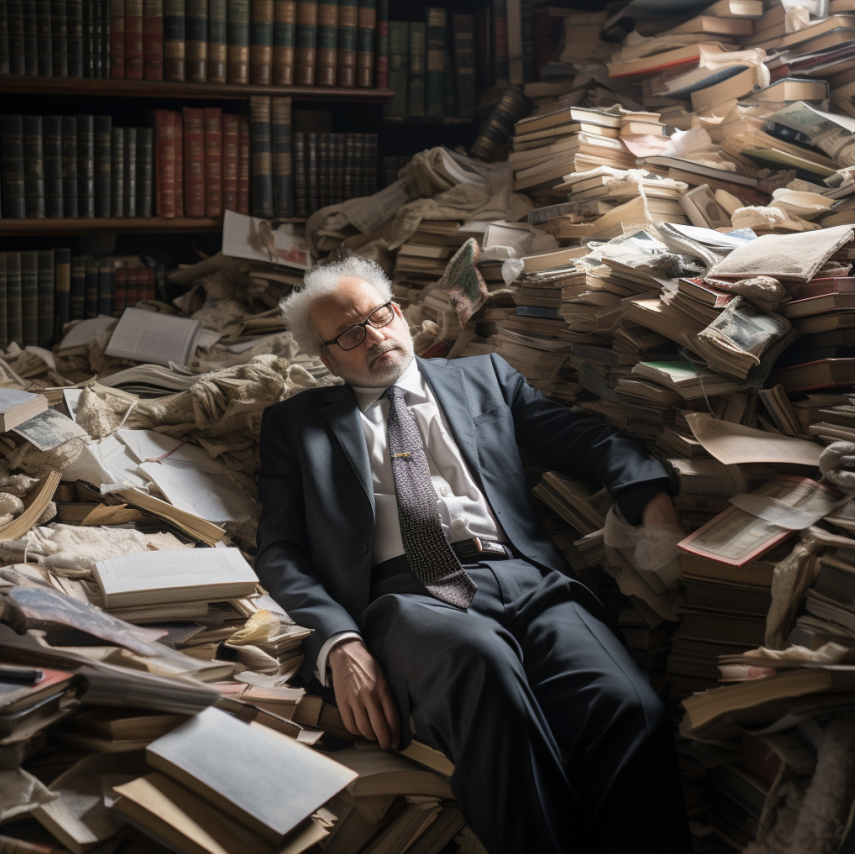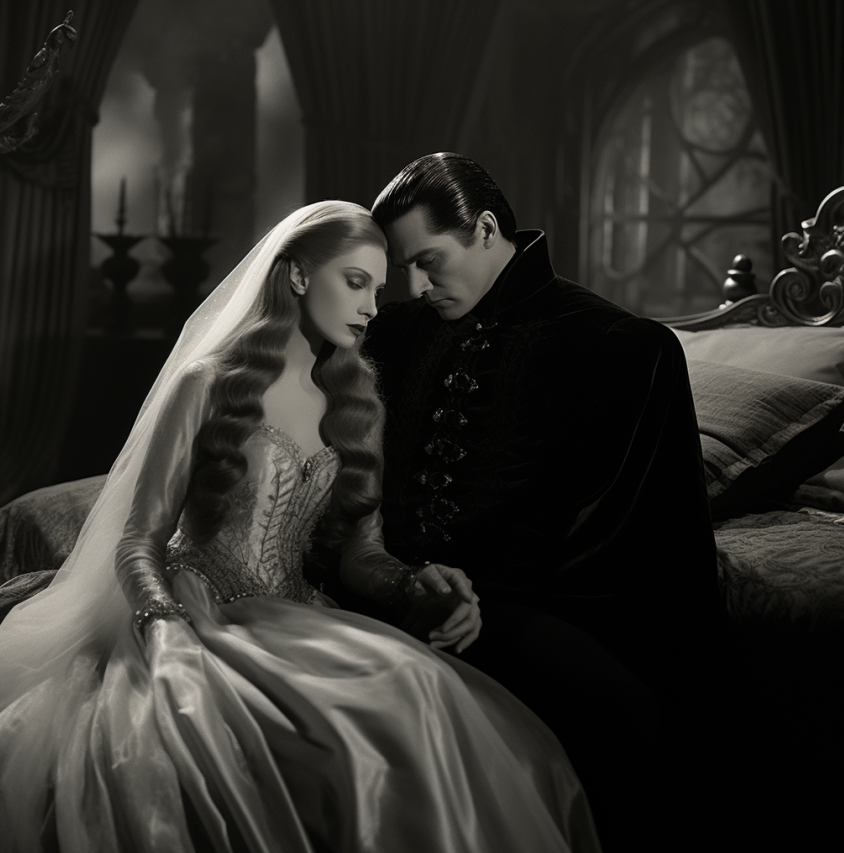What the F@#k Is IP and how does it really affect creativity?
- Andrew Grant
- Nov 2, 2023
- 8 min read
Updated: Nov 2, 2023
Let's dive into the fascinating, yet sometimes befuddling, world of IP law. For those not weighed down by the mountainous law books, Intellectual Property (IP) is, in its simplest form, the umbrella term covering patent, copyright, and trademark law. Think of it this way: a patent is the protective hug given to inventors for their nifty gadgets and methods; while copyright is the protective shield for artists and authors, ensuring their original creations, whether it's a song that makes you shimmy or a novel that keeps you up till 3 am, are safe from cheeky copycats.
Here's a fascinating tidbit: America’s flirtation with IP law began shortly after they decided to be their own boss (post 1789). And, hold onto your history hats because its European roots are even deeper, harking back to the Statute of Monopolies in 1623 Britain, giving birth to modern patent law. Picture British parliamentarians, in their ruffled shirts, wisely noting that patents were essentially state-granted monopolies. Hence, folks championing total freedom and true libertarian values are a tad skeptical about them.
And then, there’s copyright, another antique relic from the past. It was born from the Statute of Anne in 1710, with its ancestry being the government's desperate attempt to muzzle the print-happy lot post the invention of the printing press. Yes, governments and churches were the original gatekeepers, deciding what the masses should read!

But here's the twist in our tale: IP law, initially seen as mere state privileges, underwent a PR makeover. Come the 1800s, with critics howling about its anti-free-market essence, industries that had cozily bedded with IP laws, like publishers, defended it by rebranding it as 'property rights'. This gave birth to the term 'intellectual property'. Quite ingenious, right?
However, skeptics (like yours truly) argue that calling them 'property rights' is akin to selling ice to Eskimos. Real property doesn't have an expiry date like copyrights or patents. But supporters retort that the fruits of one's intellectual labor, like a groundbreaking invention or a tear-jerking novel, deserve protection.
In a delightful twist of history, the 14-year copyright term was born from the world of artisans. Imagine, for a moment, a skilled craftsman, proudly training his apprentice for seven years. After these years, the young lad could, theoretically, set up his own stall and rival his mentor. So, the thinking went, "Why not give the craftsman twice that time without competition?" It's a bit arbitrary, but that was the logic.
Yet as time moved on, especially in the 20th century, this term kept extending. The music and film industries, wielding newfound power, continually lobbied for longer terms. By the time we hit the 1980s, we'd signed up to the Berne Convention, an international copyright treaty, making copyrighting almost automatic. Confusing, right? Even more confusing? Many folks chatting about copyright often muddle it up with patents and trademarks.
Today, the moment you scribble down an idea, you're granted a copyright. No need to file or slap on a copyright notice. It just happens. Some call it protection, but it's a bit like wrapping a snowball in a winter jacket. It's bound to melt regardless.
The repercussions? Creativity, that delicate, beautiful flower, is often stifled. Artists tiptoe around, fearful of infringing upon something they never even knew existed. Ever fancied writing a sequel to your favourite novel? Well, without permissions, that's a legal landmine.
A prime example? The early black-and-white film 'Nosferatu' was axed, labeled as too close a cousin to Bram Stoker's 'Dracula'. This isn't just about movies and books, though. Copyright seeps into our daily digital lives. YouTube videos? Gone by the thousands due to copyright robots.
However, let's pause. There's a common misconception that copyrights and patents are the champions of creators. In reality, these tools often shield creators from competition, which isn't always beneficial. Imagine inventing a new widget. Thanks to patents, you can sell it without worry for years. But where's the push to innovate or improve? It's absent. Similarly, competitors, who might've made your widget even better, are kept at bay.
In the end, while it seems like a safety net, these systems might be more of a tangled web. One that curtails the free flow of ideas, stifles creativity, and, inadvertently, shapes our culture.

"Some folks" reckon if we didn't have intellectual property protections, no one would bother inventing anything – after all, why make something new if your neighbour can just swipe your idea? Now, while this is a thought and not so much an argument, it's like saying, 'Why plant an apple tree if the birds will just eat the fruit?'
The naysayers point out that, sure, patents and copyrights might sometimes put a dampener on the whole inventive spirit, what with all the legal battles and the heady bills from lawyers (like mine, I must add). But, they argue, these very patents sometimes give inventors the motivation to invent in the first place. 'Look,' they say, 'with a patent, an inventor can charge whatever they like for their brainchild for a good 17 years.' Essentially, they argue, we might lose some creative sparks here and there due to these laws, but we gain much brighter flames elsewhere.
Now, if they say we lose out on, oh, let's say $75 billion in potential innovations but gain a whopping $88 billion from others, then we're up $13 billion, right? Sounds good, except no one's ever really shown these numbers. It's a bit like saying you've found a unicorn but you left it in your other coat.
But here's the clincher for me – shouldn't laws just ensure fairness and protect rights? Laws shouldn't be like a meddling chef, forever tweaking the soup. Instead, they should set the table, ensure everyone's got a fork, and let people dig in. And as for the claim that without patents, there's zero innovation? Well, history's full of people creating and inventing long before these laws were penned. To think otherwise is a bit like believing the world was black and white before colour photography. Before the advent of intellectual property laws, people believed that there would still be innovation, just not enough. Their theory is that the free market might generate some new ideas, but to reach optimal innovation, government-granted monopolies, like patents, are needed. Yet there's no solid evidence supporting this theory. And even with patents, the level of incentivised innovation might still be below ideal. Where do we draw the line? If a 17-year patent term isn't enough, why not make it 38 years or infinite?
Furthermore, when talking about copyright infringements, the consequences can be extreme. In the U.S., someone went to jail for uploading a movie online. Another individual, Richard O'Dwyer from Britain, faced potential extradition for merely hosting links to pirated content. The idea seems as absurd as arresting someone for merely pointing out a neighbourhood known for illicit activities.
Another twist in the tale of copyright laws is the idea of "fair use". While making a personal backup of a copyrighted material might be legal, if that material has digital rights management (DRM) protection and you use a device to bypass it, you're committing a crime. This has led to bizarre situations where even general-purpose computers could be seen as illegal.
In essence, the inherent absurdity of copyright and patent laws stems from treating information, which is intangible and infinite, as property. It's not about fixing the "abuses" of the system; the system itself is inherently flawed. Knowledge and creation shouldn't be restricted as property; they should flow freely, promoting innovation and progress..

What we're getting at is the complexity and absurdities that arise when we try to apply concepts like copyright and patent to the ever-evolving world of technology and creation. There's a fundamental tension between our traditional understanding of property rights, which evolved to handle tangible, scarce resources, and the non-tangible, non-scarce nature of information and ideas.
The argument is that the very essence of information and ideas is that they're non-rivalrous: my use of an idea doesn't diminish your ability to use the same idea. However, traditional property rights arose to handle situations where resources were rivalrous: if I eat an apple, you can't eat that same apple.
The legal construct of intellectual property tries to make ideas behave like physical property, but this creates many unintended and paradoxical consequences. For instance, how do we handle AI-generated creations? If an AI can generate every melody imaginable, what does that mean for human composers who come up with a melody that an AI has already produced? The law isn't quite equipped to handle such scenarios in a manner that makes intuitive or practical sense.
Your point about potentially "breaking" the system by having an explosion of content created by machines is fascinating. As technology advances, we may reach a saturation point where the sheer volume of AI-generated content challenges our current intellectual property regime. It would be interesting to see if such a saturation could push for legal reform, especially if the current system becomes unmanageable or stifles human creativity more than it incentivises it.
The challenge ahead for lawmakers, thinkers, and technologists is how to reconcile these divergent worlds – the tangible and the intangible, the rivalrous and the non-rivalrous – in a way that's fair, fosters innovation, and respects individual rights. who's rather radical in their belief about IP, suggesting that they might be better off abolished altogether. Without these laws, they argue, it would be up to artists, authors, and entrepreneurs to figure out how to profit from their works. This already happens in some sectors; musicians, for instance, have shifted to live performances, merchandise, and streaming as revenue sources because physical sales have diminished.
JK Rowling Scenario: In a world without copyright, if someone like JK Rowling wrote a book, any studio could make a movie out of it. However, the studio that collaborates with the original author might have a market advantage, as fans might prefer the "author-approved" version.
Creator-Endorsed Mark: This is an idea where creators can give their stamp of approval to certain adaptations or products related to their work. This mark can help differentiate authentic or creator-approved products from others in the market. The user read an article from 2010 about this concept.
Market Predictability: The conversation winds down with the argument that predicting exact outcomes in a free market is challenging. Just as one couldn't accurately predict the exact number of underwear brands in a free market post-Soviet Union, it's hard to forecast the exact repercussions of abolishing or altering IP laws.
Bill Bryson would put it this way: "In the swirling digital age, with a click here and a torrent there, copyright laws teeter on the brink. Big conglomerates might still play by the rules, but the rest? It's a wild west out there. And as our printers gear up to print... well, anything, those patent laws might just collect dust. Dive into genetics, and the waters get murkier. Can you really slap a patent on Mother Nature's blueprint? Picture this: In a world sans copyright, our dear JK Rowling writes a spellbinding tale. Any movie mogul can adapt it, but wouldn't you flock to the one she nods at approvingly? The creator's seal of approval could be the new gold standard. But predicting market outcomes? That's a tale even more mysterious than a Hogwarts adventure."
Some argue that, without precise predictions, we can't free up this marketplace. But here's the thing: the mere act of having these restrictions is distorting the marketplace. When you remove them, it's like taking away the leash from a coiled spring – things are bound to change. Distortions happen, laws have consequences.
Now, I'm not your psychic aunt who claims she can tell your future based on the lines on your palm. I can't guarantee that removing these laws would mean every poet can make a living. Or that every child will get education if welfare is abolished. But then, does the socialist system guarantee this? Not really, considering they run out of money quite often.
Then there's this bizarre realm where J.K. Rowling might endorse one Harry Potter movie over another. Theoretically, someone could lie about such an endorsement. But in this age of Twitter, YouTube, and instant fact-checking, falsehoods have the lifespan of a mayfly.
We currently live in a 21st-century society trying to solve 20th-century problems. People like Dwayne "The Rock" Johnson, for instance, aren't just muscled men in movies; they're a brand, a media empire unto themselves. They communicate directly with their audience, bypassing traditional channels.
Consider this: what if we had fewer barriers? More freedom? What if Lucas didn't make that new Star Wars movie? The internet would be buzzing with reviews, comments, and discussions. Intellectual property doesn't prevent lies or guarantee truth. A knockoff Rolex bought in a shady Sydney alley for $35 isn't fooling anyone.
In essence, the world might not be a chaotic mess if intellectual property rights were loosened or even dissolved. Maybe, just maybe, the market could police itself. After all, shouldn't the goal be justice rather than an arbitrary aim? The true purpose of law is to provide justice, to recognise, identify, and enforce property rights. It's about time we aimed for that. Well, at least thats the opinion of this over opinionated Director, Cheers!


Comments